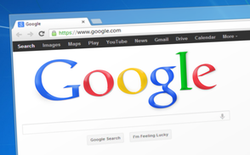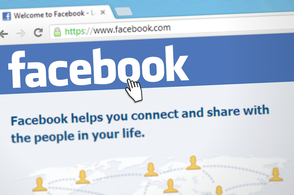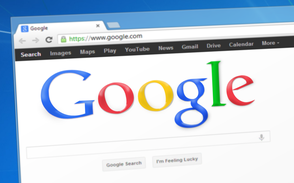The ability to instantaneously share news articles and videos on social media has ushered in a new, innovative way to stay informed on current events. According to Pew Research and the Knight Foundation, a recent study shows that 63 percent of Facebook and Twitter users currently use social media as a source for news. However, not all news sources are created equally, and social media has become a hot bed for "news" written by satirical and non credible sources. Fake news with no verifiable facts or evidence easily become mistaken for genuine credibility. Even if the mistake is made and one realizes that they have shared false information, the "share" button shows no mercy. The article has already begun to circle around the internet from one friend group to another, leaving a trail of ignorance in its wake. Learning to distinguish between credible and non credible information is an important skill essential to the protection of knowledge for every human being.

Credible Online Sources: When and When Not to Believe
by CarleyClagg
In a world where the answer to almost any question is one google search away, online credibility is more important now than ever.
Distinguishing Credibility From Non-credibility
Credible news sources use verifiable facts to support claims. Articles with no supporting evidence to truth are irrelevant sources of information. If an article seems to lack facts or make outrageous claims with no support, research the source the information is coming from to determine the credibility of the source. Often times, satirical sites are confused with actual credible news sources. Source URLs ending in .edu, and .gov are great sites to fact check information, as these are signs of credibility. If a list of sources is displayed at the bottom of an article, this is a good sign, but those sources should be checked for credibility as well. It is each persons' responsibility to make sure false information is not being advertised as truth on social media. There are too many real world conflicts and issues that need attention rather than entertaining fictional news.
Satirical and Non-Credible Websites
Here is a list of a few sources that may show up on your social media feed. While there are countless satirical and non-credible sources to be on the lookout for, these are among the most popular.
- National Report http://nationalreport.net/
- The Onion http://www.theonion.com/
- NewsBuiscuit http://www.newsbiscuit.com/
- The Daily Currant http://dailycurrant.com/
- The Spoof http://www.thespoof.com/
Credible Websites
Here is a good list of credible sites that base their information on verifiable facts.
- Center For Disease Control http://www.cdc.gov/
- BBC News http://www.bbc.com/news/world-europe-34814203
- National Public Radio http://www.npr.org/sections/news/
- The Wall Street Journal http://www.wsj.com/
- PBS News http://www.pbs.org/newshour/
Sources
http://hartness.vsc.edu/ccv/guides/how-to-find/credible-websites
http://mason.gmu.edu/~montecin/web-eval-sites.htm
http://www.niemanlab.org/2015/07/new-pew-data-more-americans-are-getting-news-on-facebook-and-twitter/
You might also like
Interesting Facts about BlogspotThere are three major players among free blogging platforms and Blogger (Blog...
Squidoo review: What it is and why you should careSquidoo was a popular revenue sharing site, similar to Wizzley, Zujava, InfoB...





 5 Sneaky Ways to Enjoy Eating Healthier Snackson 11/10/2015
5 Sneaky Ways to Enjoy Eating Healthier Snackson 11/10/2015
 How I got 5 Items From Dollar Tree for Free and Got Money Backon 11/03/2015
How I got 5 Items From Dollar Tree for Free and Got Money Backon 11/03/2015
 Lazarus Syndrome-- When the Dead Come Back to Lifeon 11/02/2015
Lazarus Syndrome-- When the Dead Come Back to Lifeon 11/02/2015
 5 Ways your Smartphone Could be Making you Money Right Nowon 11/02/2015
5 Ways your Smartphone Could be Making you Money Right Nowon 11/02/2015


Comments
Your subheading Distinguishing Credibility From Non-credibility indicates that "If an article seems to lack facts or make outrageous claims with no support, research the source the information is coming from to determine the credibility of the source. Often times, satirical sites are confused with actual credible news sources. Source URLs ending in .edu, and .gov are great sites to fact check information, as these are signs of credibility. If a list of sources is displayed at the bottom of an article, this is a good sign, but those sources should be checked for credibility as well."
Is it automatically suspect if a source seems credible in everything but it does not list its information source?
Researching critical, satirical sites brought up references to That Was the Week That Was. Wikipedia describes the program as a "satirical television comedy" series.
Do you know anything about its reputation over time?
It would be interesting to sample regional populations about the sources that they relied upon during the most restrictive versus the less restrictive times of the Covid pandemic.
Would you know whether something like that has been done, is being done or will be done?
Newspapers and radio news are contributors to keeping their readers and listeners informed.
Is there any recent ranking or study that elucidates the most credible, the most read/listened to, the most profitable newspapers and radio shows in regard to other newspapers and other radio shows and in regard to digital, televised and virtual counterparts?
The Pew Research and the Knight Foundation study results of 63 percent of Facebook and Twitter users relying upon social media as a news source certainly fits with current emphases on digital, virtual selections -- over television, DVDs and CDs -- for current events, films and music.
Some people like to know what's going on while others look for something to complain about, do something about, laugh about, talk about, write about. Was the study concerned about what social media users were looking for -- humor, prevailing opinions, research and writing topics, small talk -- in their news sources?
Is it possible that the non-credible websites are arranged from least worst to worstest or from worstest to least worst?
Revisiting your wizzley caused me to consider something that I had intended to stop by about and ask about way back with the first reading and with my first shared reactions below.
It's helpful to have both the credible and the non-credible websites. But I wonder about the order within each category. For example, would the credible sites be arranged from bestest to best or vice versa?
CarleyClagg, Thank you for the examples; I tend to look to the BBC. Unfortunately, non-credible articles sometimes can be appealing and convincing in nicely illustrated and informative formats. It's difficult to get past a good first impression.
Great article, I could not have said it better myself ;) btw, I too am from Illinois, Chicago. I currently live in Ohio but my heart belongs to Chicago...